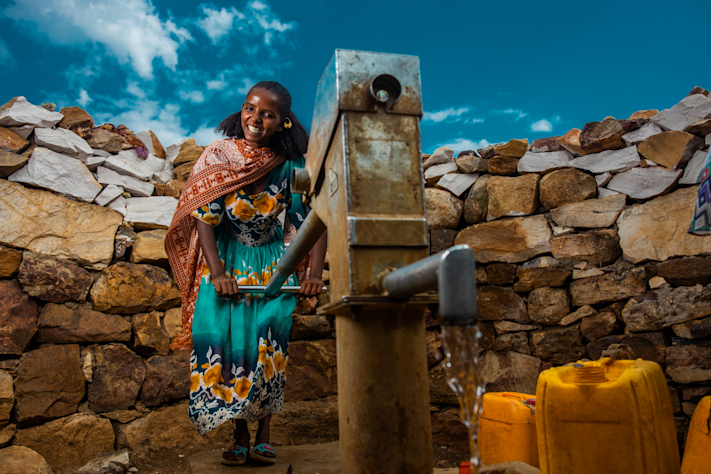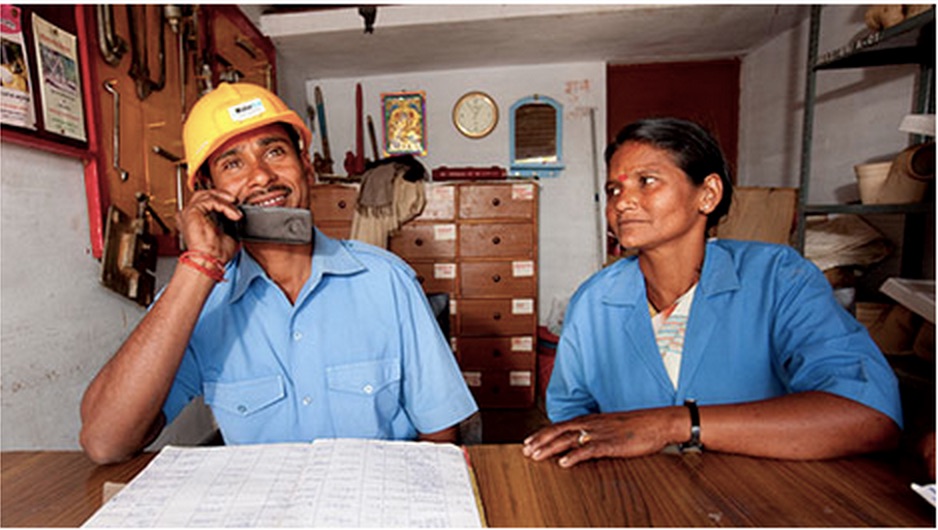ECOBAG
Organized by kenneth R Lyngaas
Help kenneth R give the gift of clean water. 100% of every donation raised will fund charity: water's work providing access to clean water projects around the world.
$260
raised
$600
goal

There are 800 million people in the world living without access to clean water. Let's change that!
THE DEEPER MEANING OF WATER
We live in a time of transition, what we are today come from our thoughts of yesterday. The bridge to a better sustainable future could only make possible from our thoughts and action. To start a charity: water campaign raising money for people in need of life basic need is a result of this. I would like to thank those who supported the previous campaign that made it possible to give nearly 50 people water for life.
BUY AN ECO-BAG AND DONATE $7 TO CHARITY: WATER
The Eco bags are made of pure organic cotton, durable and washable. They are designed by Buddha jeans as an environmental-friendly alternative for the toxic plastic bag and to support our fundraising activities. For every eco-bag sold on-line, we donate 50% to charity: water. The bags carry two different green messages: “Earth is alive” and Gandhi’s famous quote; “You must be the change you wish to see in the world”
Read more and purchase eco-bag http://buddhajeans.com/2014/11/21/purchase-an-eco-bag-and-give-people-clean-safe-water-for-x-mass/
OUR COMMON FUTURE
In 1987, the world commission of environment and development (WCED) published a report “Our Common Future, and it was this report that gave sustainable development the prominence it has today. The report opened by declaring: The Earth is one, but the world is not. We all depend on one biosphere for sustaining our lives. However, each community, each country, strives for survival and prosperity with little regard for its impacts on others. Some consume the Earth’s resources at a rate that would leave little for future generations. Others, many more in the number, consume far too little and live with the prospects of hunger, squalor, disease, and early death. WCED, 1987
WATER-LESS
All living things require water; water is one the most critical issue for human survivals ahead. We are 7 billion people living on Earth and fast moving towards 9 billion people by the middle of this century. The scariness of how little respect we have for water as fundamental for life as a resource worry. Water is a basic resource, however, also a non-renewable or infinite resource; of course, water supplies can be regenerated by creating new molecules (hydrogen and oxygen) nevertheless, the energy required to make big usable water pools is at present time too costly and not practical. The scariness of how little respect we have for water as fundamental for life as a resource worry; overuse, pollution, chemicals and fertilizers are daily transforming once drinkable to unsafe water. Simultaneously, the modern way of living increasing demand more water and water supplies are critical to sustaining our ecological, cultural, social, and economic well-being. Most of the world’s water is salt water, unsuitable for most uses. Fresh water makes up only 2.5% of the water supply and two-thirds of this is in the form of glaciers and permafrost, leaving less than 1% of the world’s water available for use. Water is therefore becoming an attractive commodity for investors to earn money, something I dislike because history has proven the effect greed has on humanity.
OUR MODERN LIFESTYLE LEAVES FOOTPRINTS OF AN ELEPHANT
Our modern lifestyle is more than any other thing a consumer-oriented culture created and instantly feed with promotional stories from a clever advertising and marketing industry. Behind this, massive propaganda is powerful multi-national corporations, with a portfolio of strong brands and immense budgets they not only influence and create a beliefs system fueled by products but try their best to increase and encourage more consumption. With their unethical and tacky, tastes are these corporations creating demand for nonessential luxury, yachts, private planes, super-size burgers and sugar-loaded soft-drinks. The results of these actions are material addictive societies on happy-pills that believe happiness = things.
The inequality in the modern world over the last decades is mostly a result of our dominant economic model capitalism, whereof a small minority control and set rules without much control society nor governments. Capitalism progress and acceptance despite societies Christian value system witnesses the danger of greed. Capitalism revolutionized production and transformed many aspects of social life and the economy. The effective way of working created wealth on a scale never before seen, however, the economic system also brought great disparities between the small minority who controlled production (capitalists) and the big majority workers called resources. The gap between rich and poor has grown substantially on a world scale over the last hundred years is a proof of a system that takes care of the few. According to the 1999 United Nations Human Development Report (UNHDR), the ratio of the income of the richest fifth of the world’s population to that of the poorest fifth increased from 30:1 in 1960 to 60:1 in 1990 and finally 74:1 in 1997.
LIVE SIMPLY SO OTHERS CAN SIMPLY LIVE, GANDHI
Already when Gandhi visited England was the increase consumption because of industrialization visible. When asked if he wanted India to attain a living standard similar to that enjoyed by Britain, Gandhi reportedly replied I am not sure about his exact words that Britain attained its high standard of living by exploiting the resources of half the world, a reference to its colonies. He then asked, “How many worlds do you think India will need to reach an alike living standard?”
Since we all want to conduct a decent life, material wealth, food, water, shelter and basic minimum of services, we take for granted a new way of living, and thinking is required. Today, modern people view water purely as a chemical substance, something we take for granted. We value water on a merely practical level; throughout a day, we use water for many different purposes and settings; physical needs such as bathing, making food, cleaning clothes, washing the house, drinking and so on. We hardly think of the deeper meaning and implication of water such as our ancestors did. Their view seeing it as the source of all life is valuable for adoption.
LACK OF CLEAN WATER KILLS MORE PEOPLE THAN ANY FORM OF VIOLENCE, INCLUDING WAR
Diseases because of lack access to clean water kill more people today than any form of violence, including war. For children, less than five years is the second largest cause of death in the world and in the sub-Sahara desert the biggest.
INVESTMENT OF $1 IN WATER GIVES BACK $12-15 LOCAL COMMUNITY
With clean water, a local community can also provide work, food and give families an extra income, a small garden to harvest vegetables and fruit and most of all the increase the ability for children to attend schools and complete their education. Research shows that an investment of $1 in water locally can give an increased value of $12 – 15$.
WATER PROJECTS GIVES WOMEN A BETTER OPPORTUNITY FOR LEADERSHIP AND EDUCATION Women’s are twice likely to collect water than men; it’s also dangerous as they get exposed to violence and rape, in addition heavy weight makes long-term tear and wear on the body and increase hospital costs. Water projects can become an important opening for woman’s opportunities to take leading roles and provide them with a necessity of working experience. It’s most likely their only chance to be elected leadership positions, and this can make an enormous impact in a society dominated by men. Furthermore, the time it takes could be used to get an education, work and time with their families.
AFRICA USES 16 MILLION HOURS A DAY TO COLLECT WATER
To collect water takes an astonishing 16 million hours a day in Africa and the cost of this is approximately 5% of GDP or 28 billion a year because of the water problems.
CHARITY: WATER IS A NON-PROFIT ORGANIZATION AND INVITES YOU TO JOIN OUR MISSION.
Since 2006, charity: water has funded water projects around the world to help millions of people get access to water, hygiene education and improved sanitation. charity: water is a non-profit organization bringing clean and safe drinking water to people in developing nations. The way they work and raise awareness about the 800 million people living without most basic needs inspires. I would like to invite others to join our mission.
BUY AN ECO-BAG AND DONATE $7 TO CHARITY: WATER
The Eco bags are made of pure organic cotton, durable and washable. They are designed by Buddha jeans as an environmental-friendly alternative for the toxic plastic bag and to support our fundraising activities. For every eco-bag sold on-line, we donate 50% to charity: water. The bags carry two different green messages: “Earth is alive” and Gandhi’s famous quote; “You must be the change you wish to see in the world”
Read more and purchase eco-bag http://buddhajeans.com/2014/11/21/purchase-an-eco-bag-and-give-people-clean-safe-water-for-x-mass/
Happy Karma Yoga from Kenneth buddha Jeans
We are about to set-up an auction on several stencil artworks painted by kenkid at Buddha Jeans company to raise awareness and money for Charitywater.org. More info follows shortly
- A
Thanks buddha jeans for selling and donatioins of the sales of eco bags and donations to charity: water
Thanks buddha Jeans for your effort to give people safe water
Thanks to Buddha Jeans for their commitment to solve the water issue
This campaign brought clean water to Mai-Kodo, Ethiopia.
Stencil art & Activism clean water
This campaign closed on Dec 31, 2020 kenneth R Lyngaas brought clean water to Mai-Kodo.
$30
raised and sent to the field
0
est. people served
ECOBAG
This campaign closed on Dec 31, 2014 kenneth R Lyngaas brought clean water to Mai-Kodo.
$260
raised and sent to the field
8
est. people served
Fashion For Water
This campaign closed on Sep 30, 2014 kenneth R Lyngaas brought clean water to Mai-Kodo.
$120
raised and sent to the field
4
est. people served
Cut use of water in fashion.
This campaign closed on Dec 31, 2013 kenneth R Lyngaas brought clean water to Mai-Kodo.
$130
raised and sent to the field
4
est. people served
organic cotton bag
This campaign closed on Nov 15, 2013 kenneth R Lyngaas brought clean water to Mai-Kodo.
$155
raised and sent to the field
5
est. people served
reduce washing jeans
This campaign closed on Aug 8, 2013 kenneth R Lyngaas brought clean water to Mai-Kodo.
$50
raised and sent to the field
1
est. people served
wash-lessjeans
This campaign closed on Mar 20, 2013 kenneth R Lyngaas brought clean water to Mai-Kodo.
$40
raised and sent to the field
1
est. people served
This campaign raised $260. That money is hard at work in the field.
100% of the money raised by this campaign is being used to bring clean water to help those in need. In 21 months we’ll be able to show you exactly where the money went and who it helped.
